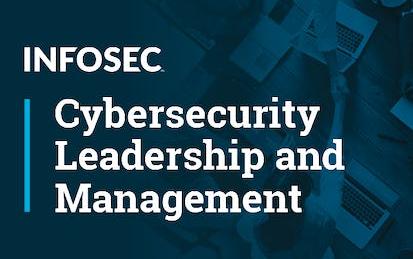

Our Courses

Applied Cryptography
This specialization is intended for the learners interested in or already pursuing a career in computer security or other cybersecurity-related fields. Through four courses, the learners will cover the security of information systems, information entropy, classical cryptographic algorithms, symmetric cryptography, asymmetric/public-key cryptography, hash functions, message authentication codes, digital signatures, key management and distribution, and other fundamental cryptographic primitives and protocols.
-
Course by

-
 Self Paced
Self Paced
-
 English
English

Designing data-intensive applications
Welcome to the specialization course of Designing data-intensive applications.
-
Course by

-
 Self Paced
Self Paced
-
 7 hours
7 hours
-
 English
English

Geographical Information Systems - Part 1
This course is organized into two parts presenting the theoretical and practical foundations of geographic information systems (GIS). - Together theses courses constitute an introduction to GIS and require no prior knowledge. - By following this introduction to GIS you will quickly acquire the basic knowledge required to create spatial databases and produce high-quality maps and cartographic representations. - This is a practical course and is based on free, open-source software, including QGIS. If you study or work in the fields of land management or the analysis of geographically distributed
-
Course by

-
 Self Paced
Self Paced
-
 20 hours
20 hours
-
 English
English

Geographical Information Systems - Part 2
This course is the second part of a course dedicated to the theoretical and practical bases of Geographic Information Systems (GIS). It offers an introduction to GIS that does not require prior computer skills. It gives the opportunity to quickly acquire the basics that allow you to create spatial databases and produce geographic maps. This is a practical course that relies on the use of free Open Source software (QGIS, Geoda). In the first part of the course (Geographical Information Systems - Part 1), you explored the basics of land digitization and geodata storage.
-
Course by

-
 Self Paced
Self Paced
-
 10 hours
10 hours
-
 English
English

Geodesign: Change Your World
Ignite your career with Geodesign! The magnitude of challenges before us exceeds the reach of conventional approaches to planning and design. The pandemic has spawned urgent needs for new design approaches and solutions. Also at the doorstep is climate change: altering community design approaches; addressing infrastructure types and locations; as well as the need to protect carbon-sequestering environs. Geodesign provides a revolutionary way forward.
-
Course by

-
 Self Paced
Self Paced
-
 11 hours
11 hours
-
 English
English

IT Infrastructure and Emerging Trends
Today organizations are either embracing digital technologies to improve their businesses or being disrupted by entrants with such capabilities. Therefore it is important for managers and executives of all organizations to learn about various technologies and apply them in innovative ways. Some of the most important trends in Information Technology are in mobile, cloud, security, and blockchains. This course gives you an overview of the fundamental technical aspects of Information Technology.
-
Course by

-
 Self Paced
Self Paced
-
 9 hours
9 hours
-
 English
English

Geometric Algorithms
Geometric algorithms are a category of computational methods used to solve problems related to geometric shapes and their properties. These algorithms deal with objects like points, lines, polygons, and other geometric figures. In many areas of computer science such as robotics, computer graphics, virtual reality, and geographic information systems, it is necessary to store, analyze, and create or manipulate spatial data.
-
Course by

-
 Self Paced
Self Paced
-
 18 hours
18 hours
-
 English
English

GIS Data Formats, Design and Quality
In this course, the second in the Geographic Information Systems (GIS) Specialization, you will go in-depth with common data types (such as raster and vector data), structures, quality and storage during four week-long modules: Week 1: Learn about data models and formats, including a full understanding of vector data and raster concepts. You will also learn about the implications of a data’s scale and how to load layers from web services. Week 2: Create a vector data model by using vector attribute tables, writing query strings, defining queries, and adding and calculating fields.
-
Course by

-
 Self Paced
Self Paced
-
 27 hours
27 hours
-
 English
English

Analysis for Business Systems
Most often, organizations acquire information systems as part of a larger focus on process improvement and efficiency. These organizations need to invest in the right system to meet their needs: right functionality, right size, and for the right price.
-
Course by

-
 Self Paced
Self Paced
-
 9 hours
9 hours
-
 English
English

Introduction to Computer Information Systems
This Specialization is intended for anyone seeking to learn basic computer skills. Through 3 courses, you will study computer hardware, software, and data safety. You will also learn about digital literacy and productivity tools. These courses will prepare you for a number of jobs within the field of computer information systems.
-
Course by

-
 Self Paced
Self Paced
-
 English
English

Cybersecurity Leadership and Management
This Specialization will introduce you to cybersecurity leadership and management. Drawing on industry standards, frameworks and models, you will explore the key objective elements of cybersecurity leadership. Cybersecurity leadership and management are two high-level competences required to successfully administer a cybersecurity division that produces the essential level of security, trust and stability (STS) demanded by an organization.
-
Course by

-
 Self Paced
Self Paced
-
 English
English

Healthcare Data Management and Information Systems
This course is the continuation of the Health Informatics for Healthcare Professionals course. If you have not yet taken the introductory course, it is recommend that you complete that course prior to this course. The foundational knowledge from the introduction is carried through in this deeper dive into informatics in healthcare. In this course, you will have an opportunity to explore concepts and topics related to the design and management of health information systems.
-
Course by

-
 Self Paced
Self Paced
-
 16 hours
16 hours
-
 English
English

MySQL with Information Technology
In this project you will explore how MySQL fits into information systems. You will become familiar with MySQL features as you explore database management system options and participate in hands-on exercises using MySQL Workbench to create and populate a table in a MySQL relational database. Note: This course works best for learners who are based in the North America region. We’re currently working on providing the same experience in other regions.
-
Course by

-
 Self Paced
Self Paced
-
 3 hours
3 hours
-
 English
English

IT Fundamentals for Business Professionals: Enterprise Systems
Working with Information Technology (IT) without the necessary background? Learn the fundamentals of Information Systems in a corporate environment
-
Course by

-
 12
12
-
 English
English

Information Systems
This specialization provides a robust introduction to the key principles and practices of Information Systems Management. The first course describes how Information Systems address business problems. This takes the form of an IT alignment model that describes how Information Systems provide capabilities that enable or support organizational strategy. This component also includes an economic analysis of the Information System. The second course in the specialization entails the practice of modeling information systems.
-
Course by

-
 Self Paced
Self Paced
-
 English
English

Database systems
This specialized program is aimed at computer people who want to enter the field of information systems and learn their different types of requirements, architectures, performance, techniques and tools so you can know when to use business intelligence, data mining, data science, databases , databases in memory or big data in order to have reliable, maintainable and scalable data intensive systems.
-
Course by

-
 Self Paced
Self Paced
-
 English
English

Introduction to Information Systems for Business
This Specialization is for learners seeking to develop skills in information systems. Through each course, learners will apply knowledge and skills to solve problems in their field (e.g., health informatics, legal, project management, customer experience/marketing, finance).
-
Course by

-
 Self Paced
Self Paced
-
 English
English

Digital Health
This specialisation introduces students to the emerging and multidisciplinary field of digital health and the role and application of digital health technologies including mobile applications, wearable technologies, health information systems, telehealth, telemedicine, machine learning, artificial intelligence and big data. These digital health technologies are assessed in terms of their opportunities and challenges to address real-world public health and health care system challenges in order to improve the quality, safety and efficiency of these services.
-
Course by

-
 Self Paced
Self Paced
-
 English
English

Health Systems Development
This specialisation aims to expose students to, and engage them in, all-encompassing thinking of ‘health systems’ and the importance of a horizontal approach to health system investment to achieve better health outcomes. The specialisation also aims to provide insight into a range of disciplines including organisational behaviour, health policy, information systems and human resources in order to strengthen students’ capacities to think as effective health leaders.
-
Course by

-
 Self Paced
Self Paced
-
 English
English

Geographic Information Systems (GIS)
Knowledge of Geographic Information Systems (GIS) is an increasingly sought after skill in industries from agriculture to public health. This Specialization, offered in partnership with ArcGIS developer Esri, will teach the skills you need to successfully use GIS software in a professional setting. You will learn how to analyze your spatial data, use cartography techniques to communicate your results in maps, and collaborate with peers in GIS and GIS-dependent fields.
-
Course by

-
 Self Paced
Self Paced
-
 English
English


Information Systems Auditing, Controls and Assurance
The course is awarded The Best Free Online Courses of All Time, and Best Online Courses of the Year (2021 Edition) by Class Central (http://www.classcentral.com). --- Information systems (IS) are important assets to business organizations and are ubiquitous in our daily lives. With the latest IS technologies emerging, such as Big Data, FinTech, Virtual Banks, there are more concerns from the public on how organizations maintain systems’ integrity, such as data privacy, information security, the compliance to the government regulations.
-
Course by

-
 Self Paced
Self Paced
-
 9 hours
9 hours
-
 English
English

Management
This course will introduce you to cybersecurity leadership and management. Drawing on industry standards, frameworks and models, you will explore the key objective elements of cybersecurity leadership. Cybersecurity leadership and management are two high-level competences required to successfully administer a cybersecurity division that produces the essential level of security, trust and stability (STS) demanded by an organization.
-
Course by

-
 Self Paced
Self Paced
-
 6 hours
6 hours
-
 English
English

Foundations of Information Systems for Business
This course introduces foundational concepts in business information systems. It presents essential components of data systems, how data systems are used in business, and the roles and responsibilities of people who work within information systems.
-
Course by

-
 Self Paced
Self Paced
-
 20 hours
20 hours
-
 English
English

Quality Improvement for Population Health
Quality improvement methods were first deployed in healthcare in e hospital settings. However, over the past decade particularly, there has been increasing focus on the application of these methods in improving population and public health. In this course, you will apply a combination of both approaches to population health improvement.
-
Course by

-
 Self Paced
Self Paced
-
 14 hours
14 hours
-
 English
English



